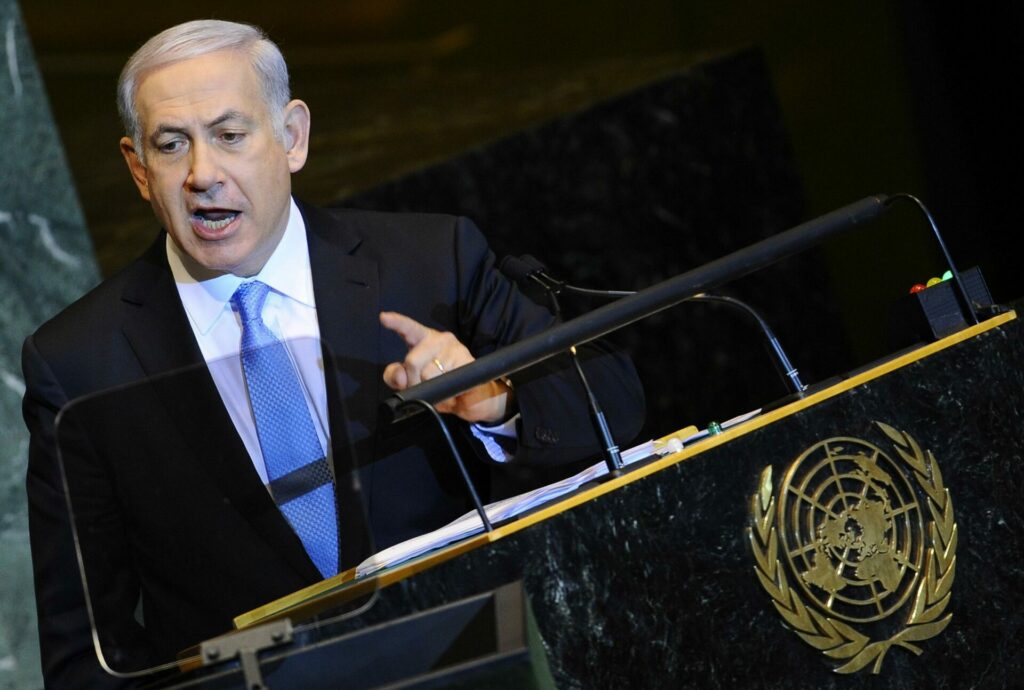Former Israeli Prime Minister Benjamin Netanyahu has edged even closer to clinching a dramatic return to power despite being embroiled in a corruption scandal and ousted as the country's leader in June 2021.
With just over 90% of Tuesday's votes counted, Netanyahu's right-wing political bloc – which includes both ultra-Orthodox and far-right parties – is projected to win 65 seats in the 120-seat Knesset. Earlier projections had suggested that Netanyahu's bloc would win 61 or 62 seats.
"We are close to a big victory," Netanyahu told a group of ecstatic supporters at his election headquarters in Jerusalem. "We have won a huge vote of confidence from the people of Israel."
Netanyahu's victory would mark an end to the political deadlock that has paralysed Israeli politics over the last few years: the most recent election is Israel's fifth in four years, with no political bloc able to cobble together a functioning coalition for any extended period of time.
Belying predictions that Israelis might be suffering from electoral fatigue, turnout for this year's election is believed to have topped 71% – the highest level since 2015.
The right wins big
Despite being only slightly ahead in the popular vote, the election nevertheless represents a huge victory – and vindication – for Netanyahu.
In a further electoral triumph, his own right-wing party, Likud, is projected to become the Knesset's largest party, winning 32 seats: eight more than second-placed Yesh Atid, the centrist party of current Prime Minister Yair Lapid, Netanyahu's main rival for the premiership.
Lapid's ideologically diverse 'anti-Netanyahu' political bloc contains parties from both the left and right. It is projected to gain a mere 50 seats – well short of the 61 required to form a majority in the Knesset.
But Lapid has yet to concede defeat: "Nothing is decided," he told supporters at a rally in Tel Aviv on Wednesday. "We will wait patiently... for the final results."

Election poster in Tel Aviv for the Labour Party and its leader, Merav Michaeli, who is also Transport Minister in the outgoing coalition government. Failure to cooperate with leftist party Meretz led to the latter party not passing the parliamentary threshold.
Left-wing and Arab nationalist parties have also performed remarkably poorly in this year's elections. The Labour Party, historically one of Israel's most powerful political forces, is expected to win a paltry four seats. Meretz, another left-wing party, is likely to fall below the 3.25% threshold required to enter the Knesset.
Critics assert that a failure of the two parties to cooperate – or even merge politically – is what ultimately led to their poor electoral performance.
Balad, an Arab nationalist party, is also expected not to gain enough votes to pass the parliamentary threshold.
Netanyahu, who is currently on trial for corruption, is a highly divisive figure in Israeli politics. The election was widely regarded within Israel as essentially a referendum on his suitability as a statesman.
Related News
- Israeli elections: Pro-Netanyahu bloc in the lead but final count far from over
- Israel headed for new elections after government collapse
At a press conference held earlier today, EU Foreign Affairs spokeswoman Nabili Massrali stressed that although the electoral process is still "ongoing", the EU nevertheless "look[s] forward to work with next government which is democratically elected."
The final results are expected to be announced on Friday.

